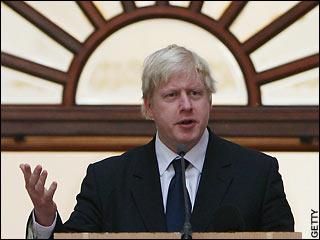By Michael C. Maibach*
To understand this political moment of Boris Johnson becoming Britain’s Prime Minister, let us look at six “divisions of downfall.”
These matter all the more as Johnson has claimed that he will be able to unite the country under his leadership. That, in view of what is outlined below, seems a practical impossibility.
1. Divided people
By a vote of 52% vs. 48%, the British people voted to “Leave” the European Union after 46 years of EU membership.
This vote followed a tumultuous campaign of dire economic warnings and harsh, emotional accusations about prudence and nationhood all around.
Those debates caused nationalistic pride to clash with the idea of being part of Europe and “the wider world,” as they say in Britain.
2. Divided regions
Perhaps most important among these six divisions is found in the division of the four UK regions. England (53%) and Wales (53%) voted to “Leave.” Scotland (62%) and Northern Ireland (56%) voted to “Remain.” The United Kingdom is thus truly divided.
To see what lies ahead, just look at the road from the town of Clones in Ireland to the town of Cavan in Northern Ireland.
That six-mile drive crosses the Northern Ireland-Ireland border four times! The idea of re-dividing Ireland by customs posts was perhaps the seventh “division” in this unique set of contretemps.
3. Parliament vs. the people
In June 2016, a majority of MPs voted to “Remain,” as did the majority of Prime Minister Cameron’s Conservatives in Parliament – including Mrs. May.
Since then, Brexit has become the kind of political question Edmund Burke would have relished examining.
Does an MP stay true to their judgment as to what is best for their country, or stay true to the will of a popular mandate like this referendum?
4. Divided May coalition and a divided Ireland
In June 2017 Prime Minister May imprudently called “snap elections,” seeking to enhance her five-seat majority in Parliament. Instead, Conservatives lost 13 seats and were forced to form a minority government with the Democratic Unionist Party of Northern Ireland, the DUP.
The DUP had endorsed a “Leave” vote in 2016, but when Mrs. May and the EU came up with the “Irish Backstop” proposal that would keep Northern Ireland in the EU customs zone with Ireland, the DUP rejected this plan.
The Irish Backstop would have separated Northern Ireland from the other three UK regions for customs purposes. Suddenly, the Good Friday Agreement of 1998 and even the idea of the reunification of Ireland seemed in play.
5. Divided UK Parliament
Since 2016, Mrs. May and her Cabinet tried in vain to fashion a Brexit package acceptable to their party, the UK Parliament and the European Union.
In the process, over 25 members of her Cabinet resigned – an historic number of Cabinet desertions!
The ever-persistent Mrs. May could not fashion a Brexit deal acceptable to her party or Parliament, even though she tried in three (failed) floor votes.
One of those votes, on January 15, was a 432 vs. 202 record-breaking loss, triggering a no confidence movement inside Mrs. May’s party.
Talks between Mrs. May and Labour Party leader Jeremy Corbyn then ensued, but brought no resolution as Labour was for a Norway-like Brexit arrangement.
6. Divided Conservative MPs
A sixth division exists within the Conservative Party MPs. It is the division between “Hard vs. Soft” Brexiteers.
Hard Brexiteers sought an immediate break with the EU – no phase-out or departure fees.
They would have accepted short-term uncertainty and commercial dislocations in exchange for the long-term gains of new free trade agreements, e.g. with the United States, and instant freedom from EU business “red-tape.”
Hard Brexiteers claim they were responding to the voices of the voters.
Soft Brexiteers were more aligned with the City of London and the larger business community – both of which feared the loss of EU markets, foreign investment, economies of scale for industry, as well as supply chain breaks.
They saw the instant customs and regulatory changes of a Hard Brexit as daunting for companies large and small.
Conclusion
For Boris Johnson, it has been a life-long ambition to become Prime Minister of his country.
Coincidentally, the same holds true for Theresa May, only to resign having found the Brexit “knot” impossible to untie. Now “BoJo” moves to No. 10 to see if he is any more seaworthy than Mrs. May.
The divisions that thwarted Mrs. May’s serious efforts at resolving the inner divisions of the country she led proved insurmountable for her.
The divisions among the British people, regions, Parliament and political parties are so deep and consequential that her erstwhile dream job turned into a political nightmare from which her boundless energy and limited political skills provided no escape.
Boris Johnson claims that he can work magic where all others have failed. Many on all sides doubt that he can succeed. If he does, it will be evidence of leadership skills that are as exceptional as they are unanticipated.
The often stormy English Channel will have more political boats crashing upon its rocks before this Brexit affair is sorted out.
*Managing Director of the James Wilson Institute in Washington DC.
**First published in theglobalist.com




 By: N. Peter Kramer
By: N. Peter Kramer
